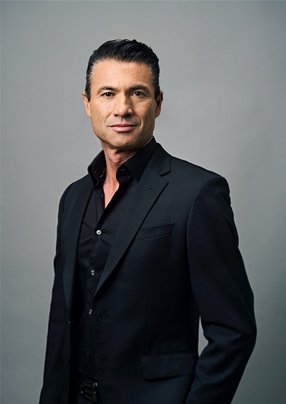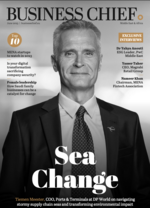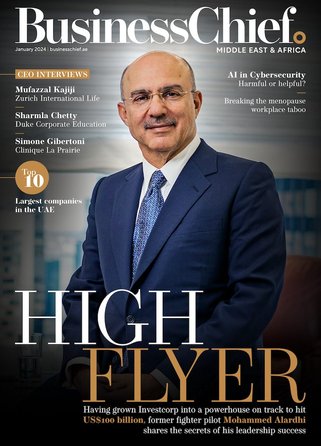It’s a truth universally acknowledged (in the telco world, at least) that in its current state, “the industry is in decline”.
After failing to evolve alongside the global technological landscape for the past few decades, telecoms has proven slow to change, to drive forward, and to differentiate. This has led to declining revenues and returns amid increasing costs and competition, placing the industry in a precarious position.
Meanwhile, across this same 40-year period, cellular networks and enterprise IT have undergone multiple stages of evolution to reach where they are today.
“Mobile networks and telecom networks in general, because of the complexity and because of the fact that the technology is quite unique, have not gotten to a level of openness as we have in the enterprise world,” explains Rabih Dabboussi, Rakuten Symphony’s Chief Business Officer and a keen technologist with an abundance of experience.
“For example, your email application from Microsoft works with my email application from Apple, a radio site that is offered by vendor X with antenna, a base band unit, and associated ancillaries and components, but that cannot be disaggregated – where you select the antenna from vendor X and the basement unit from vendor Y, and other control planes and user plane functions from vendor Z.
“So the idea behind Mobile as a Software is to open up those very interesting and proprietary interfaces that used to be monolithic, breaking them down and disaggregating them through standard interfaces.
“And that's why Open RAN is not something that Rakuten came up with; it’s something that the industry demanded, it stemmed out of a need. And although Rakuten advanced it and contributed and participated, this is an industry drive and an industry initiative.”
Lebanese by birth, having left the country after high school to attend college in the US, Dabboussi is no stranger to disruptive change.
Following his repatriation, he chose to study software engineering at North Carolina State University – a decision that led Dabboussi to a role at world-renowned company Cisco. There, he developed hardware libraries and embedded platforms, and set the foundation for a 30-year-plus career spent working with technology in one way or another. 15 of these years were exclusively dedicated to R&D (research and development), while the other 15 were spent in the field and included travel to 180 countries.
Among other roles in this period, Dabboussi also established a successful “cybersecurity firm that went from $0 to $1bn in just four, short years”. At this point, he decided a break was in order and planned a six-month sabbatical that included a protracted period of skiing; in the end, though, he managed just one week of skiing before embarking on his next challenge with Rakuten Symphony.
Dabboussi attributes his success throughout his career to his diversity of experience – including travelling to hundreds of countries – his open-minded approach, and skill as a technologist who’s able to “break down complex ideas into manageable chunks”.
Though thankful for the success and various achievements he has accumulated, Dabboussi hopes that Rakuten will be “the last stint” in his career, so he can end it on a high while also changing the face of telecoms for the future: “I'm very bullish, very positive and very hopeful about what the future looks like for us.”
He concludes: “The next two years are our window of opportunity to lead the disruption in the industry and open a new chapter in the history of the telecom world. It's time for a change. And we'd like to have our name and our brand stand in that new chapter of telecom history.”
Read the full story HERE.
Featured Interviews
Inge Huijbrechts, Global SVP Sustainability, Security & Corporate Communications at Radisson Hotel Group, discusses the business’s sustainability journey
Prashant Gulati is driving Faraday Future to pole-position in the luxury electric car industry as they prepare to launch the FF 91
“We are building what we believe is the most connected, most comfortable, most technologically-advanced electric car in the world: we call it the FF 91”
Mansour Al Blooshi, Head of Procurement at Abu Dhabi’s Mohamed bin Zayed University of Artificial Intelligence (MBZUAI), on delivering AI’s future talent
Inge Huijbrechts, Global SVP Sustainability, Security & Corporate Communications at Radisson Hotel Group, discusses the business’s sustainability journey






